Polyamide threads
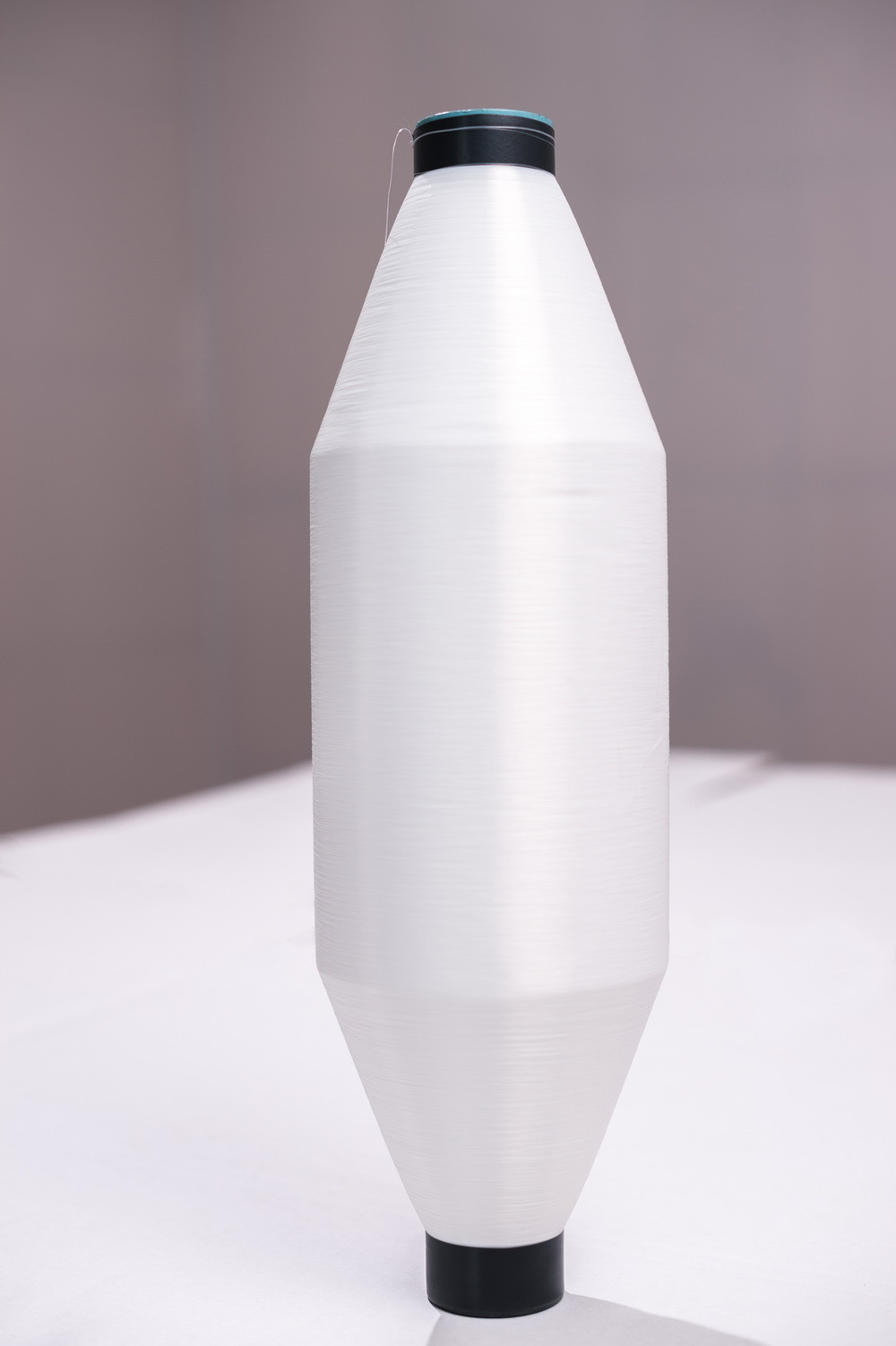
Polyamide smooth has distinctive physical and chemical properties: high strength, low weight, thinness, good coloring, uniformity. It has high breathability, smooth surface, softness and pleasant neck.
Among the advantages of smooth polyamide yarns are good wear resistance; stability of the structure, which does not lead to shrinkage of the fibers. In case of deformation, you can easily return the products to their original shape. They are heat-resistant and tolerate ironing well.
Among the advantages of smooth polyamide yarns are good wear resistance; stability of the structure, which does not lead to shrinkage of the fibers. In case of deformation, you can easily return the products to their original shape. They are heat-resistant and tolerate ironing well.
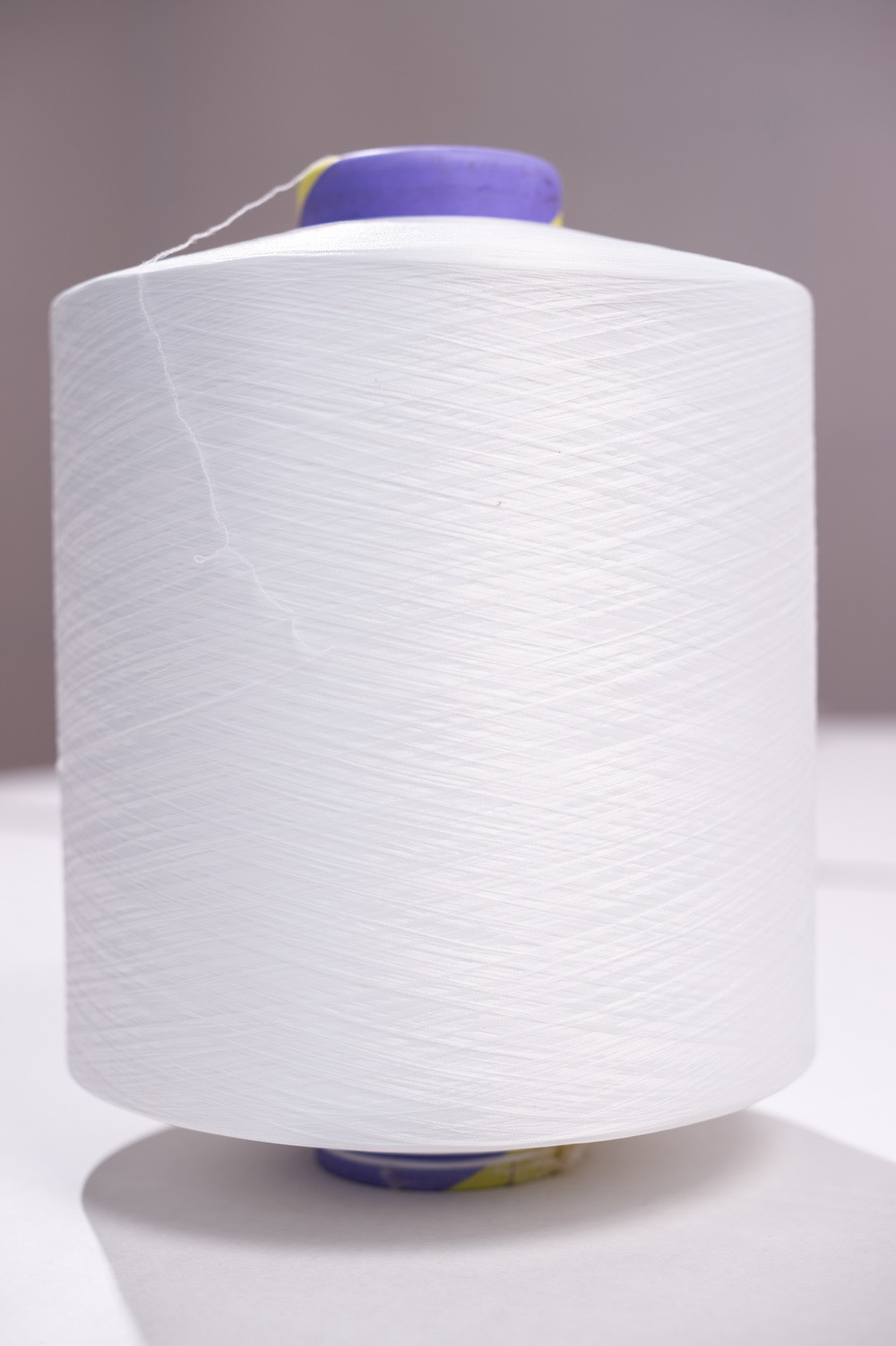
Distinctive properties of such threads are high porosity, volume, good extensibility. Texturized threads are used to process knitwear, overcast seams, are used to finish the edges of the fabric using an overlock, and they are also widely used in the manufacture of hosiery.
Polyamide textured threads are quite elastic. They have a looped structure. Do not break down when exposed to high temperatures.
The special structure of the textured threads makes them "fluffy" in appearance, and synthetic materials are used for manufacturing. Fabrics made from textured threads do not require special care, while they are more resistant to moisture and fire than natural ones.
Textured threads made of polyamide are more durable, but have a significant drawback - high electrification.
They are used in the form of complex continuous threads in hosiery production, as well as for the manufacture of: thin fabrics for women's clothing and underwear, for decorative and upholstery fabrics, carpets, ropes, fishing tackle, in the form of a single elementary thread (monofilament) very thin - for thin stockings, or, conversely, very thick - for spatula fiber processed in a mixture with natural fibers, which increases the wear resistance of the resulting products.
Polyamide textured threads are quite elastic. They have a looped structure. Do not break down when exposed to high temperatures.
The special structure of the textured threads makes them "fluffy" in appearance, and synthetic materials are used for manufacturing. Fabrics made from textured threads do not require special care, while they are more resistant to moisture and fire than natural ones.
Textured threads made of polyamide are more durable, but have a significant drawback - high electrification.
They are used in the form of complex continuous threads in hosiery production, as well as for the manufacture of: thin fabrics for women's clothing and underwear, for decorative and upholstery fabrics, carpets, ropes, fishing tackle, in the form of a single elementary thread (monofilament) very thin - for thin stockings, or, conversely, very thick - for spatula fiber processed in a mixture with natural fibers, which increases the wear resistance of the resulting products.
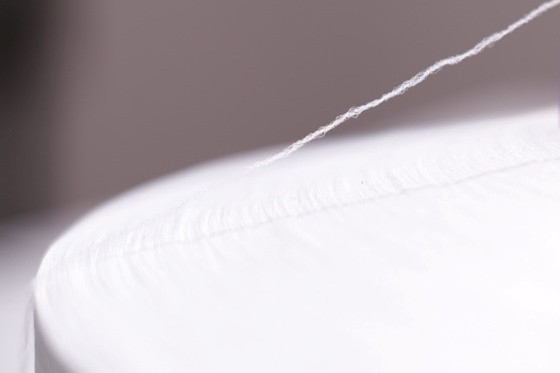
The advantage of twisted polyamide thread is that it has high tear resistance, ability to resist decay, water repellency, non-tangling and tangling resistance, and abrasion resistance.
It is flexible, soft and elastic. The surface of the thread is with a uniform thickness without excessive thinning and compaction.
It is flexible, soft and elastic. The surface of the thread is with a uniform thickness without excessive thinning and compaction.
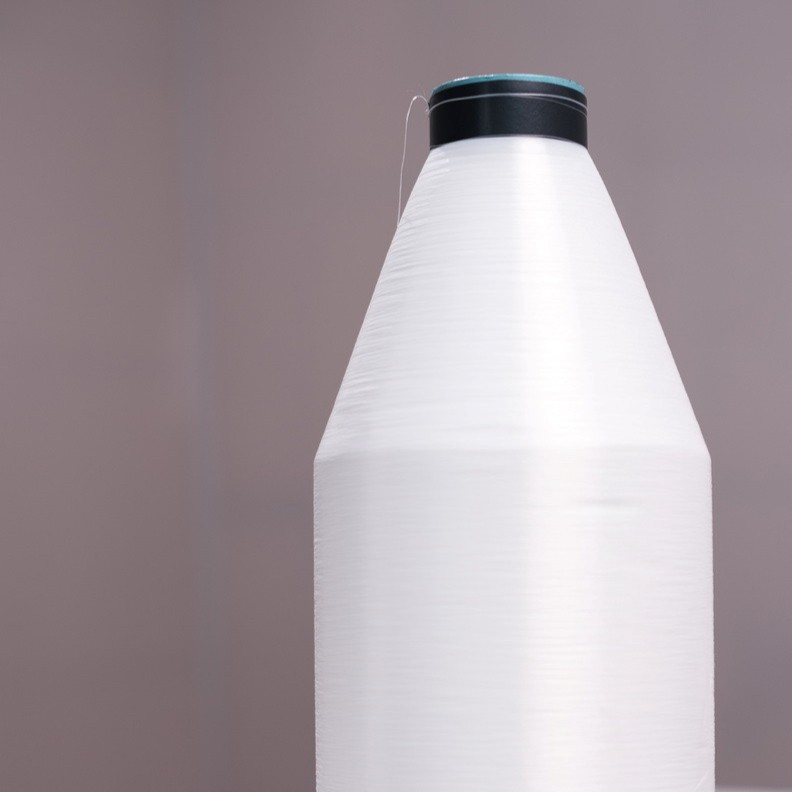
Polyamide 66 is a polyamide with higher tensile and compressive strength, improved wear resistance, and less moisture absorption than Polyamide 6 (PA 6).
Special properties:
• Improved wear resistance compared to PA 6
• Improved compressive and tensile strength
• Improved temperature resistance compared to PA 6
• Very good fatigue resistance
• Slight cold flow.
Special properties:
• Improved wear resistance compared to PA 6
• Improved compressive and tensile strength
• Improved temperature resistance compared to PA 6
• Very good fatigue resistance
• Slight cold flow.
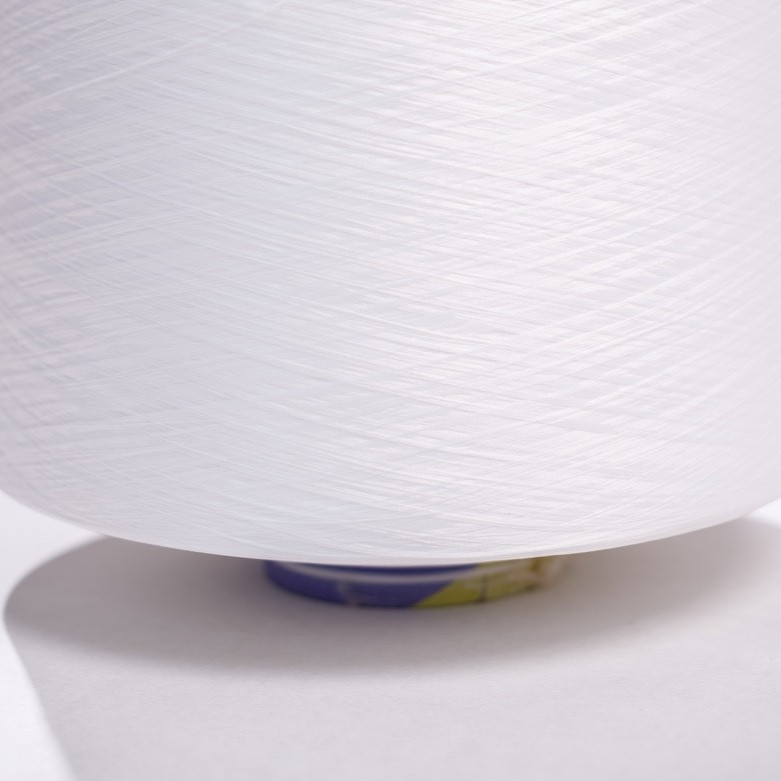
Distinctive properties of such threads are high porosity, volume, good extensibility. Texturized threads are used to process knitwear, overcast seams, are used to finish the edges of the fabric using an overlock, and they are also widely used in the manufacture of hosiery.
Polyamide textured threads are quite elastic. They have a looped structure. Do not break down when exposed to high temperatures.
The special structure of the textured threads makes them "fluffy" in appearance, and synthetic materials are used for manufacturing. Fabrics made from textured threads do not require special care, while they are more resistant to moisture and fire than natural ones.
Textured threads made of polyamide are more durable, but have a significant drawback - high electrification.
They are used in the form of complex continuous threads in hosiery production, as well as for the manufacture of: thin fabrics for women's clothing and underwear, for decorative and upholstery fabrics, carpets, ropes, fishing tackle, in the form of a single elementary thread (monofilament) very thin - for thin stockings, or, conversely, very thick - for spatula fiber processed in a mixture with natural fibers, which increases the wear resistance of the resulting products.
Polyamide textured threads are quite elastic. They have a looped structure. Do not break down when exposed to high temperatures.
The special structure of the textured threads makes them "fluffy" in appearance, and synthetic materials are used for manufacturing. Fabrics made from textured threads do not require special care, while they are more resistant to moisture and fire than natural ones.
Textured threads made of polyamide are more durable, but have a significant drawback - high electrification.
They are used in the form of complex continuous threads in hosiery production, as well as for the manufacture of: thin fabrics for women's clothing and underwear, for decorative and upholstery fabrics, carpets, ropes, fishing tackle, in the form of a single elementary thread (monofilament) very thin - for thin stockings, or, conversely, very thick - for spatula fiber processed in a mixture with natural fibers, which increases the wear resistance of the resulting products.
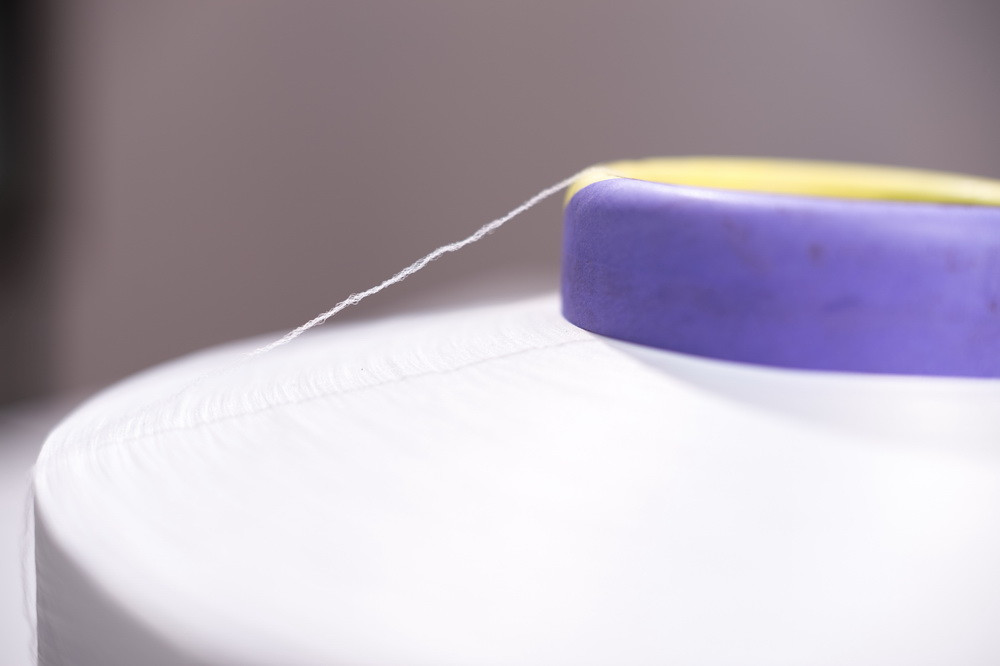
The advantage of twisted polyamide thread is that it has high tear resistance, ability to resist decay, water repellency, non-tangling and tangling resistance, and abrasion resistance.
It is flexible, soft and elastic. The surface of the thread is with a uniform thickness without excessive thinning and compaction.
It is flexible, soft and elastic. The surface of the thread is with a uniform thickness without excessive thinning and compaction.
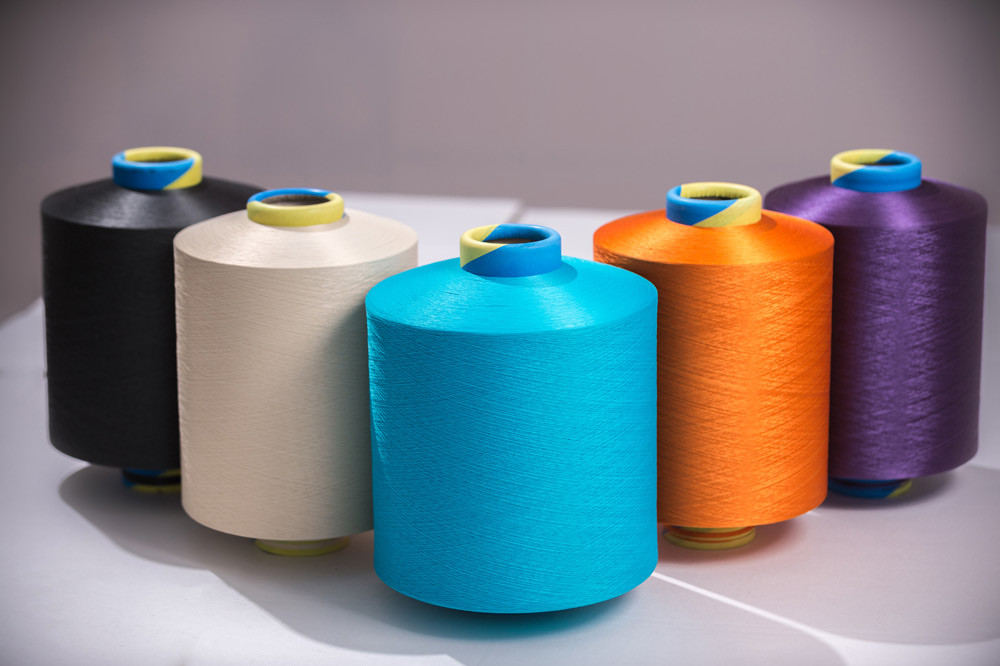
Polyamide sewing threads are quite strong. Under the influence of moisture and water are not destroyed. The only negative is the low heat resistance.
Polyamide yarns are characterized by a high level of strength and toughness. The fibers of the thread are resistant to abrasion, repeated bending, and retain their shape for a long time.
Their main advantage over natural analogues is moisture resistance. Fungus and mold do not form on the fibers; when wet, they do not lose their properties.
Physical properties:
- flexibility, elasticity;
- softness;
– homogeneous structure;
- a light weight.
Polyamide yarns are characterized by a high level of strength and toughness. The fibers of the thread are resistant to abrasion, repeated bending, and retain their shape for a long time.
Their main advantage over natural analogues is moisture resistance. Fungus and mold do not form on the fibers; when wet, they do not lose their properties.
Physical properties:
- flexibility, elasticity;
- softness;
– homogeneous structure;
- a light weight.
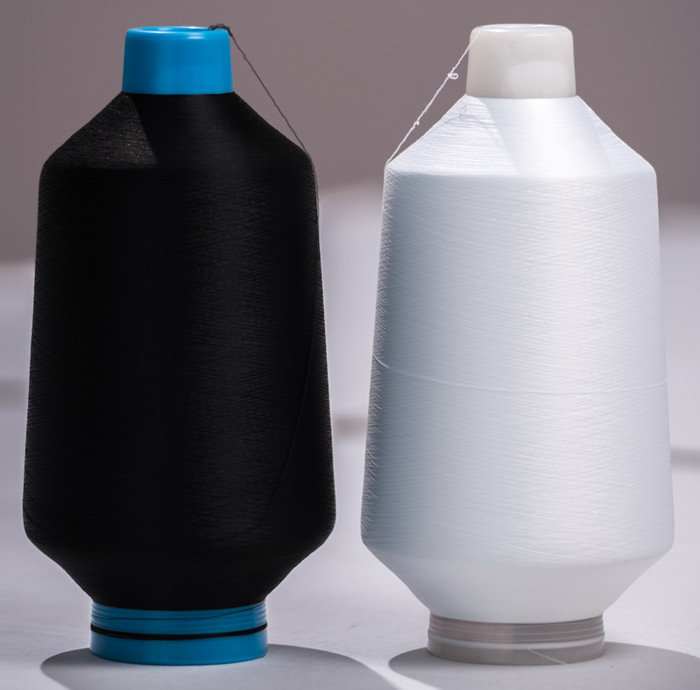
These are polyamide threads that are used for sewing up the toe in hosiery production.
In stock:
- black color
- white color.
Polyamide yarns are characterized by a high level of strength and toughness. The fibers are not destroyed under the influence of UV radiation, temperature fluctuations, thermal oxidizers, sea salt.
Physical properties: flexibility, elasticity, softness, uniform structure, light weight.
In stock:
- black color
- white color.
Polyamide yarns are characterized by a high level of strength and toughness. The fibers are not destroyed under the influence of UV radiation, temperature fluctuations, thermal oxidizers, sea salt.
Physical properties: flexibility, elasticity, softness, uniform structure, light weight.

